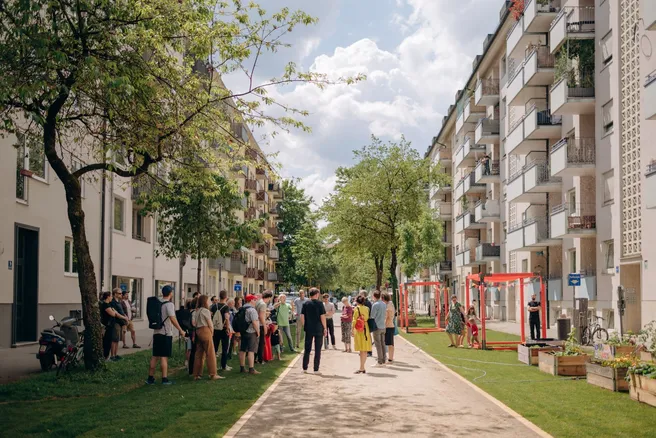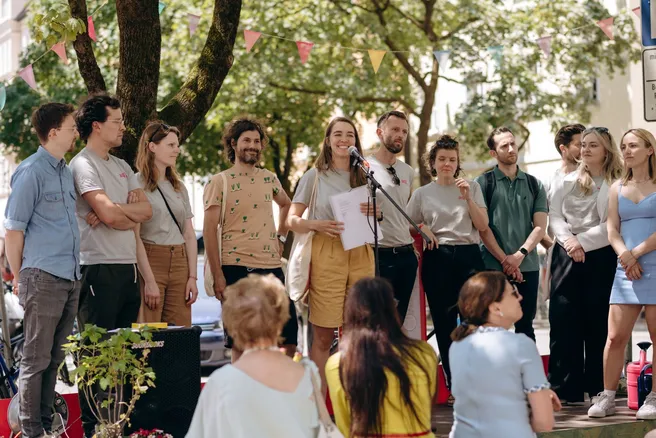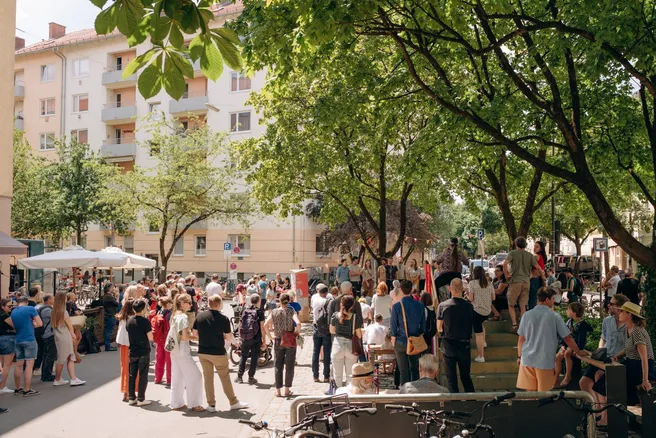The festival began with a warm welcome and opening ceremony at the intersection of Schlotthauer Straße and Kolumbusstraße. Moderated by Oliver May-Beckmann, Managing Director of MCube, the ceremony featured speeches by esteemed guests, including Jeanne Rubener (Vice President of the Technical University of Munich), Georg Dunkel (Mobility Commissioner of the City of Munich), Stadtbaurätin Prof. Dr. Elisabeth Merk, Prof. Ben Bouscein (Technical University of Munich Urban Design), and the entire MCube aqt team. The speakers introduced the entire MCube aqt project, officially launching the summer interventions.
Throughout the day, participants enjoyed various activities and attractions. The Kolumbusstraße transformed into a green meadow and sandy area, inviting visitors to relax, exchange ideas, garden, and unwind on the lush grass. A special magic show entertained the audience in the afternoon.
Residents had the opportunity to explore new mobility options at the Edlingerplatz and Kolumbusstraße mobility hubs, where they could learn about sustainable transportation and test different modes of transport. The event also featured a diverse cultural program, including music performances and lectures, creating a lively atmosphere.
For those seeking a beach-like experience, the Gemeinschaftsstrand offered sandy areas for sunbathing and playtime. Additionally, attendees could attend open-air lectures on the future of mobility at the Edlingerplatz.
The aqt project, part of the MCube Future Cluster, is one of fourteen innovation projects funded by the German government. Led by MCube, the initiative explores sustainable mobility solutions in urban neighborhoods, and the TUM Chair of Urban Structure and Transport is proud to have research associate Simone Aumann involved in the project. Temporary transformations of certain street sections in the "Südliche Au" and "Walchenseeplatz" parking zones will create spaces for new mobility forms, recreation, and improved quality of life until the end of October 2023.
Underpinned by the pressing need for climate action and a more equitable distribution of public space, MCube researchers are investigating the potential benefits of car-reduced neighborhoods for the community. Local residents have been actively engaged through participation events and individual conversations, allowing them to contribute their ideas, shape the pilot project, and provide feedback on various project components.
MCube and the TUM Chair of Urban Structure and Transport are excited to support and share the progress and outcomes of the MCube aqt project, which aims to create a more sustainable and livable urban environment.


